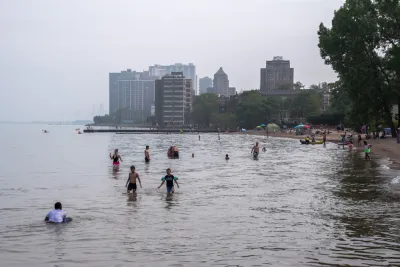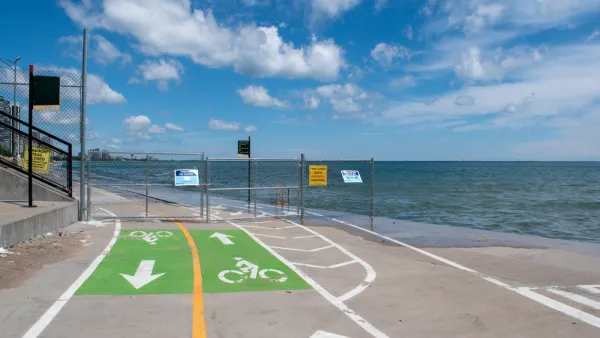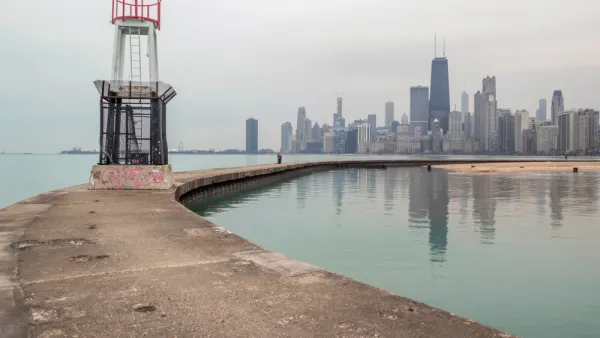A tide that began to rise in 2019 hasn't receded, according to local sources along Lake Michigan.

Keith Matheny reports from the shores of Lake Michigan, where homeowners are watching the waters rise at an alarming rate, encroaching on property and requiring some homeowners to demolish their homes and relocate.
"Though the high water that was coming in 2020 could be seen as far back as last fall, when the typical annual receding never happened, and many were better prepared for what was coming than last year, high water impacts this spring and summer have been just as widespread and severe as 2019, if not worse," reports Matheny, citing state authorities from three states.
"Lake elevation records continue to be broken, a trend that will continue at least on connected Lakes Michigan and Huron into fall."
It isn't just private property owners facing the consequences of rising waters. The Michigan Department of Transportation has spent $5 million on emergency repairs related to high water this spring and summer.
Matheny provides dispatches from Lathe, in Ottawa County Michigan and Detroit to illustrate the widespread effect of the rising waters—in a dry year, no less. Long-term fixes for MDOT to address long-term high water would require more like $100 million, according to Brad Wieferich, director of MDOT's Bureau of Development, who is cited in the article.
FULL STORY: Record-high Michigan water levels are a nightmare for homeowners, state

National Parks Layoffs Will Cause Communities to Lose Billions
Thousands of essential park workers were laid off this week, just before the busy spring break season.

Retro-silient?: America’s First “Eco-burb,” The Woodlands Turns 50
A master-planned community north of Houston offers lessons on green infrastructure and resilient design, but falls short of its founder’s lofty affordability and walkability goals.

Delivering for America Plan Will Downgrade Mail Service in at Least 49.5 Percent of Zip Codes
Republican and Democrat lawmakers criticize the plan for its disproportionate negative impact on rural communities.

Test News Post 1
This is a summary

Test News Headline 46
Test for the image on the front page.

Balancing Bombs and Butterflies: How the National Guard Protects a Rare Species
The National Guard at Fort Indiantown Gap uses GIS technology and land management strategies to balance military training with conservation efforts, ensuring the survival of the rare eastern regal fritillary butterfly.
Urban Design for Planners 1: Software Tools
This six-course series explores essential urban design concepts using open source software and equips planners with the tools they need to participate fully in the urban design process.
Planning for Universal Design
Learn the tools for implementing Universal Design in planning regulations.
EMC Planning Group, Inc.
Planetizen
Planetizen
Mpact (formerly Rail~Volution)
Great Falls Development Authority, Inc.
HUDs Office of Policy Development and Research
NYU Wagner Graduate School of Public Service





























